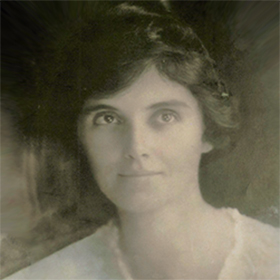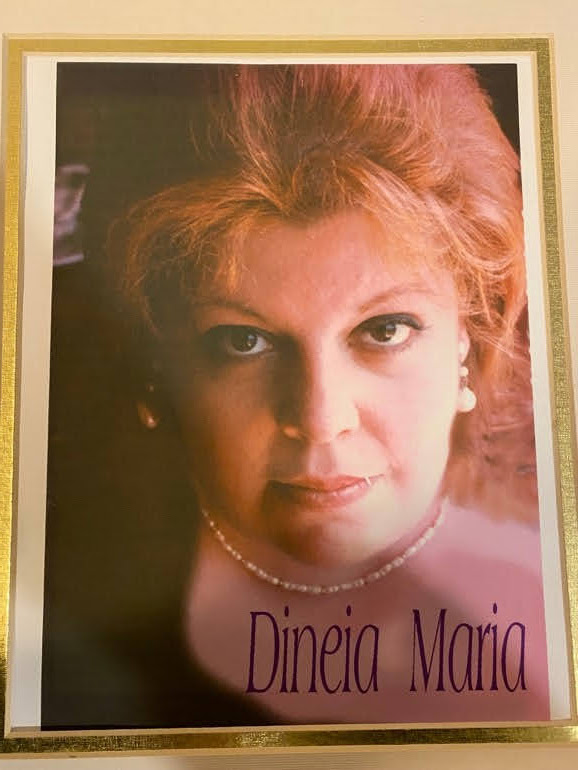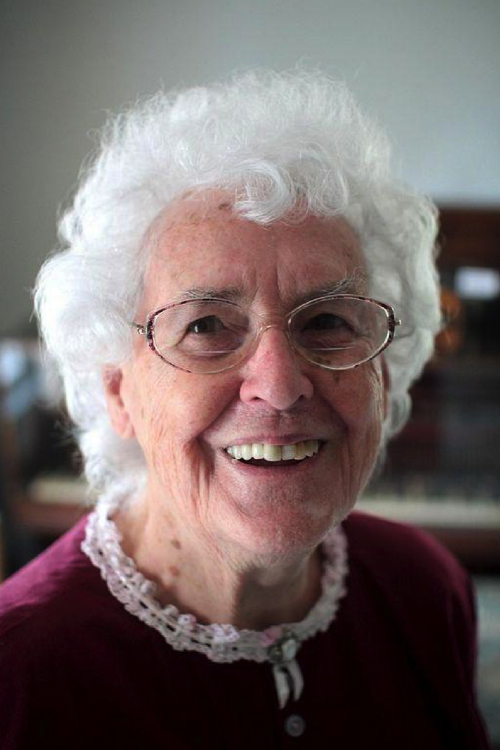Peace, love, and understanding were hallmarks of Rachel Howland (1816-1902). Rachel negotiated peace in labor disputes, was a respected minister in the Society of Friends, and founded the Association for the Relief of Aged Women of New Bedford based on the principle, “Not Alms Alone, But a Friend.”
Peace, love, and understanding were hallmarks of Rachel Howland (1816-1902). Rachel Collins Smith was born on May 6, 1816, in Burlington, New Jersey, into a prominent Quaker family that struggled financially for two generations with the early deaths of her father and grandfather. From 1840 to 1842, New Bedford’s Matthew Howland, co-owner of the whaling business George Howland & Sons, courted Rachel in Burlington with visits and letters that are now part of the Howland Family Papers in the New Bedford Whaling Museum Research Library. The responsible Matthew and the enlightened Rachel were married on September 8, 1842. The newlyweds settled in New Bedford, where Rachel continued her activity in the Society of Friends and began her work in peacemaking and compassionate philanthropy. While Matthew worked daily in the counting house, Rachel focused on benevolence.
Rachel was devoted to the Society of Friends, where she served as minister for over 50 years. She believed in the “Inward Light,” the direct experience of a loving God in each person. Although the freedom to speak during meetings was given to Quaker women from the movement’s very beginning, Rachel gained respect as a minister by speaking authentically, interestingly and acceptably. Her testimony in New Bedford meetings was recognized as worthy of dissemination through travel in the ministry. Soon she was given permission to minister outside of New Bedford, in Boston and beyond, in city and state reformatory organizations. Locally, regionally and even nationally, Rachel gained respect for her new understandings of the light and her concerns for others. On an 1865 trip to the White House toward the end of the Civil War, Rachel prayed side by side with President Lincoln, both kneeling before the Supreme Ruler. In 1870, Rachel and Matthew funded the Howland Mission Chapel, a nondenominational house of worship for textile mill workers that was constructed near the Wamsutta Mill on Purchase Street.
Peacemaking flowed naturally from Rachel’s Quaker faith. In 1867, during the Wamsutta Mill textile worker strike, she mediated a peaceful settlement between striking skilled workers and mill directors that offered the workers some of their demands, including a 10-hour work day. A vote of thanks was unanimously passed by the strikers and their spokesman stated that no one else could have done what she did. In 1874, Rachel organized a meeting between feuding New Bedford public school teachers and their new superintendent at her home, where she acknowledged the work of the female teachers and asked that the Great Teacher bless them. She remained active nationally in the late 19th-century peace movement and was even recognized as author of the movement’s rallying cry “outlaw war.”
Rachel translated her personal experience of God into social activism that addressed the suffering of others. She had founding and leading roles in the Association for the Relief of Aged Women of New Bedford in 1866, the Ladies City Mission Society in 1868, the Children’s Aid Society and the Instructive Nurses Association in 1891. Rachel founded the Association for the Relief of Aged Women of New Bedford and served as its first president for 19 years, from 1866 to 1885. She also served as long term president of the City Mission, New Bedford’s major private charitable group. Beyond New Bedford, Rachel was a benefactor of Myrtilla Miner’s School for free Black children in Washington, for which she also served as a trustee alongside her friend Harriet Beecher Stowe.
Of all her philanthropy, Rachel especially cherished her work with the Association for the Relief of Aged Women of New Bedford, her most enduring philanthropy, still in existence today. The Association’s founding principle remains “Not Alms Alone, But a Friend,” and its purpose continues to be “to furnish assistance to, and promote the welfare and relief of, elderly women.” Rachel and the other members took on the care of elderly women in a very personal way, by assessing and addressing each woman’s individual needs and by regular visits. In its first year, having secured private and public donations, the Association assisted 35 women with both material support and friendship. At the Association’s annual meeting in 1867 held at City Hall, the Secretary’s Report states, “Besides the material aid these old women receive, they seem to derive great comfort from the care and sympathy of the ladies, looking forward to their visits from time to time with eager anticipation. On our part it is pleasant to be able to smooth their difficult ways, furnishing some with warmer clothing or more abundant food, giving fuel to others, occasionally paying a deficiency in rent or little worrying debt, and in every way trying to relieve where want and poverty press hardest.”
In 1876, Rachel reflected on the Association’s work in her address to the board on the Association’s 10th anniversary by stating, “In looking over our ten years association in this work, I feel my connection with it to have been one of the great privileges of my life. We are the almoner of the bounty of others. The money we distribute is not our own. Only the fidelity and wisdom with which we exercise this trust may be said to be ours. And more was intended in this distribution than merely conveying material aid to the needy. There is a personal sympathy and tender care and interest called for from us.” She reminded members to understand the poor and to guard against feeling superior to those in need.
The Association continues today, led by volunteer board members meeting the needs of between 150-200 women in the communities of Acushnet, Dartmouth, Fairhaven, New Bedford and Westport. The volunteers visit beneficiaries on a monthly or annual basis, with some visits for only friendship if no material gift is needed. The board members continue to work in committees very similar to Rachel’s original organizational model and intent. For over 150 years, the Association for the Relief of Aged Women of New Bedford’s mission of helping elderly women in need as friend has been preserved, fostered and managed by women who hold true to the guiding principles of its founding woman, Rachel Howland.
Later in life, Rachel experienced the suffering that she worked so hard to alleviate in others. By the 1870s, as the whaling industry faltered, Rachel and Matthew suffered substantial financial losses. Although Matthew continued to work and give back to his city, he was a semi- invalid for most of his life and his letters show signs of recurring depression. In an 1882 letter to her son Morrie, Rachel acknowledged that she was very busy taking care of his father, who eventually needed morphine for pain. The Howlands were forced to sell many of their properties, including their residential estate on Hawthorn Street, sold to William W. Crapo upon Matthew’s death in 1884. Rachel moved to 21 South Sixth Street and summered at a second home on what is now Hazelwood Park. In 1897, her son William D. Howland, director of three textile mills that were financially failing, jumped into the New Bedford harbor from the Howland family dock and committed suicide. On August 13, 1902, Rachel passed away suddenly in Providence at the age of 87. Her words and actions live on today through the members of the Association for the Relief of Aged Women. Over the course of their lives together, Rachel and Matthew gave away more than half of their income to philanthropic causes.
Roseanne O’Connell and Ann O’Leary
Information from
-
Allen, Everett S. Children of the Light: The Rise and Fall of New Bedford Whaling and the Death of the Arctic Fleet. Parnassus Imprints, 1983.
-
Barnes, Bruce. “Howland Mill Village, 1888-1889.” New Bedford Preservation Society, Sept. 2007, http://www.nbpreservationsociety.org/howlandmillhousing.html.
-
Esten, Emily. “Matthew and Rachel Howland.” New Bedford Whaling Museum Blog, posted by Mark Procknik, 21 July 2014, https://whalingmuseumblog.org/2014/07/21/matthew-and-rachel-howland/.
-
Hussey, Cornelia C. “Rachel S. Howland.” The Peacemaker, vol. 21, no. 11, Universal Peace Union, Nov. 1902.
-
New Bedford Whaling Museum Research Library Mss 135. Howland Family Papers. https://www.whalingmuseum.org/collections/highlights/manuscripts/mss-135/.
-
Nichols, Peter. Final Voyage: A Story of Arctic Disaster and One Fateful Whaling Season. G. P. Putnam’s Sons, 2009.
-
O’Connell, Roseanne, and Jo-Ann Beaulieu, board members of the Association for the Relief of Aged Women of New Bedford. Personal interview. 13 July 2017.
!["[Rachel Smith Howland]," 1868, Ambrotype, Brass Mat and Preserver, New Bedford Whaling Museum, 2000.100.2060 Ambrotype image of Rachel Smith Howland](https://historicwomensouthcoast.org/wp-content/uploads/2018/05/R-Howland_2000.100.2060-343x343.jpg)




